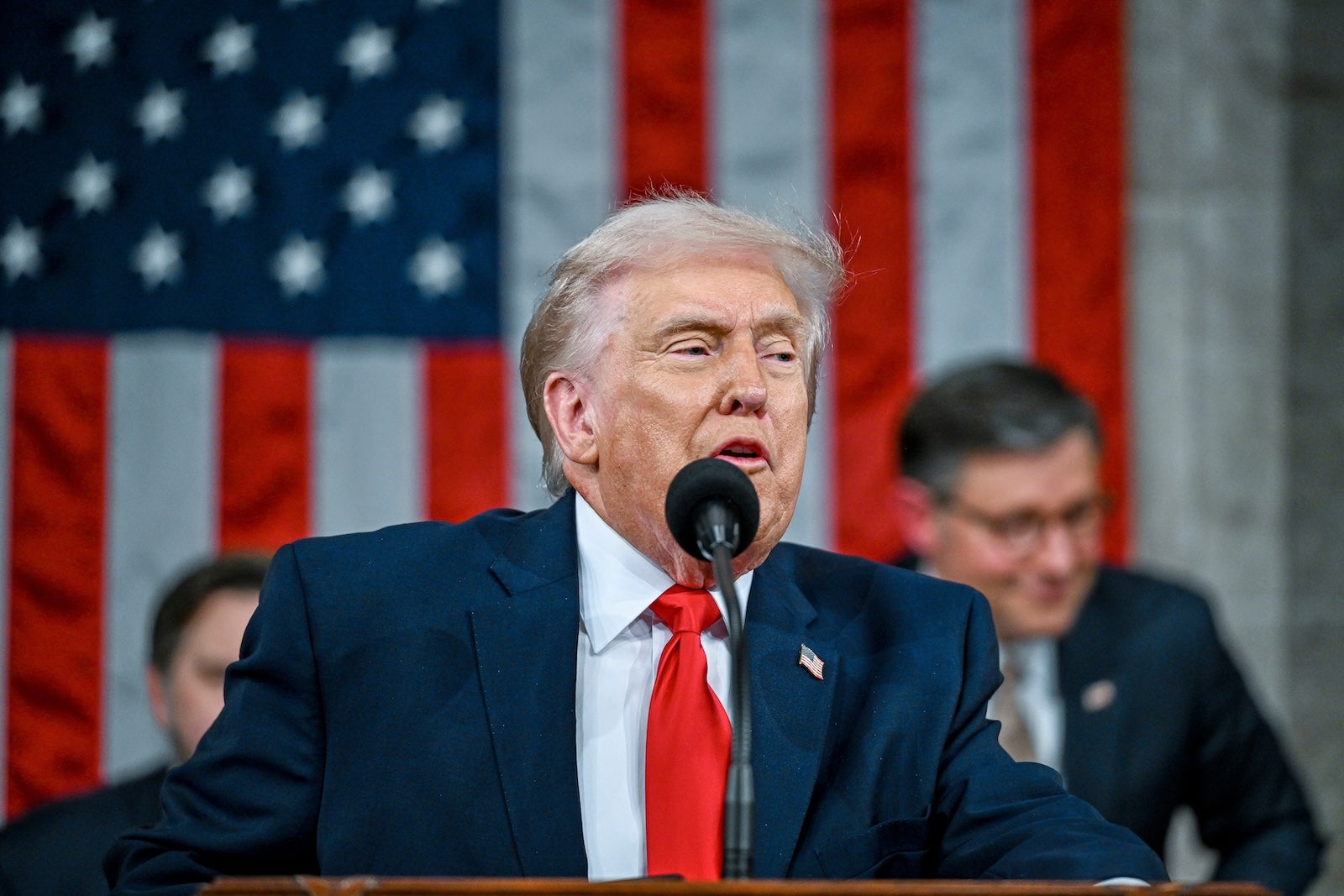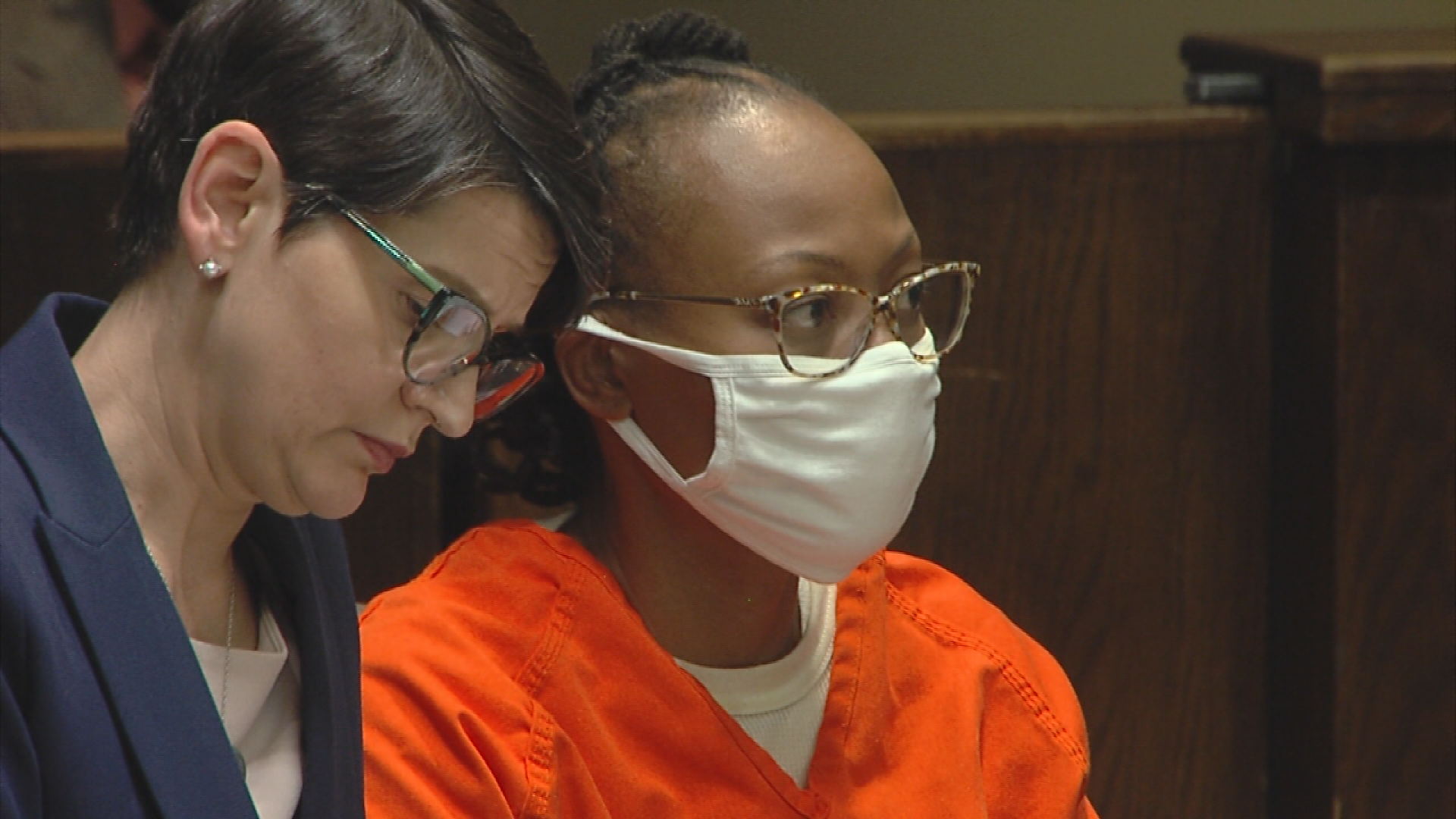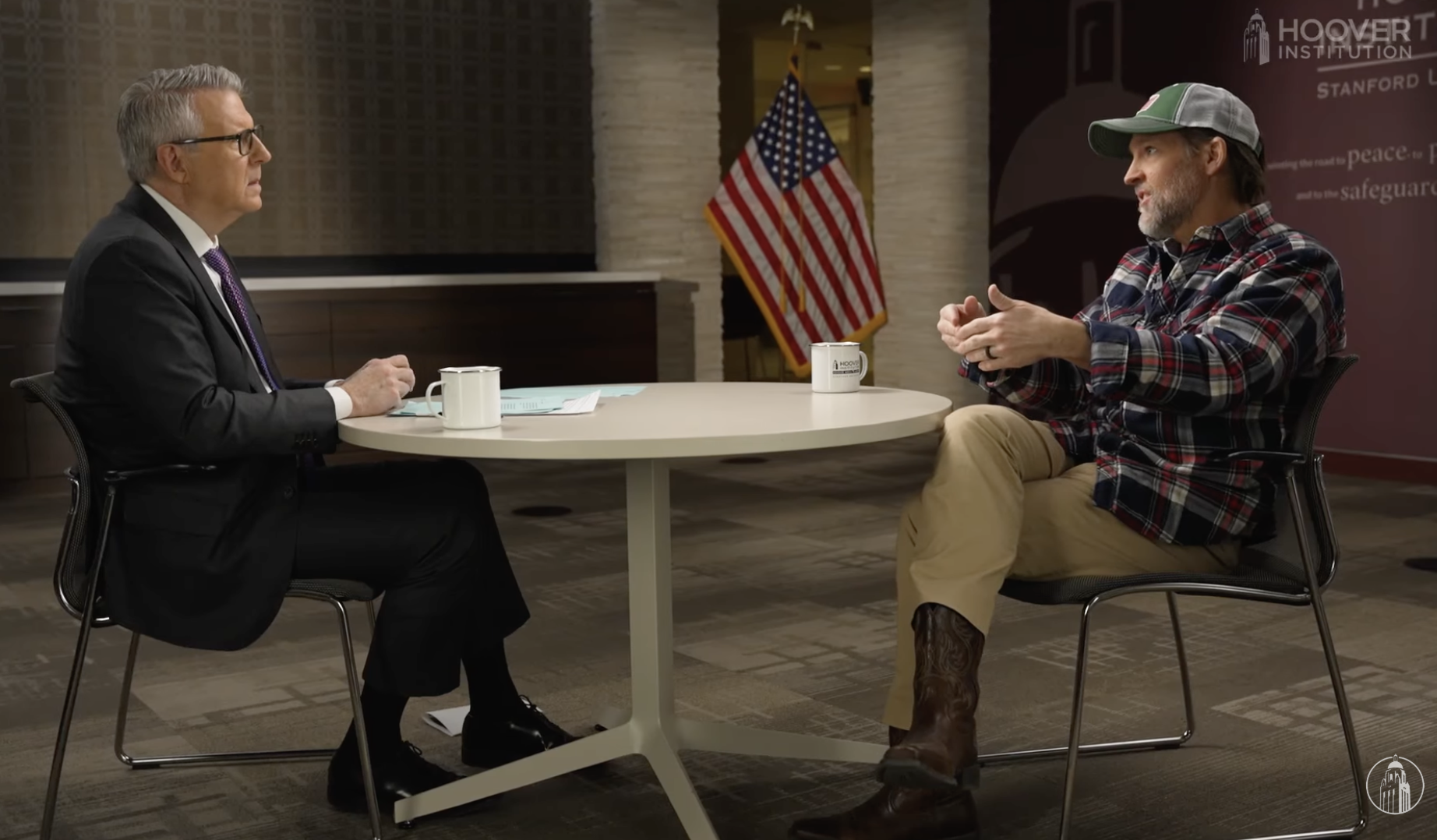GENZ Set To Be The Most Christian Generation!
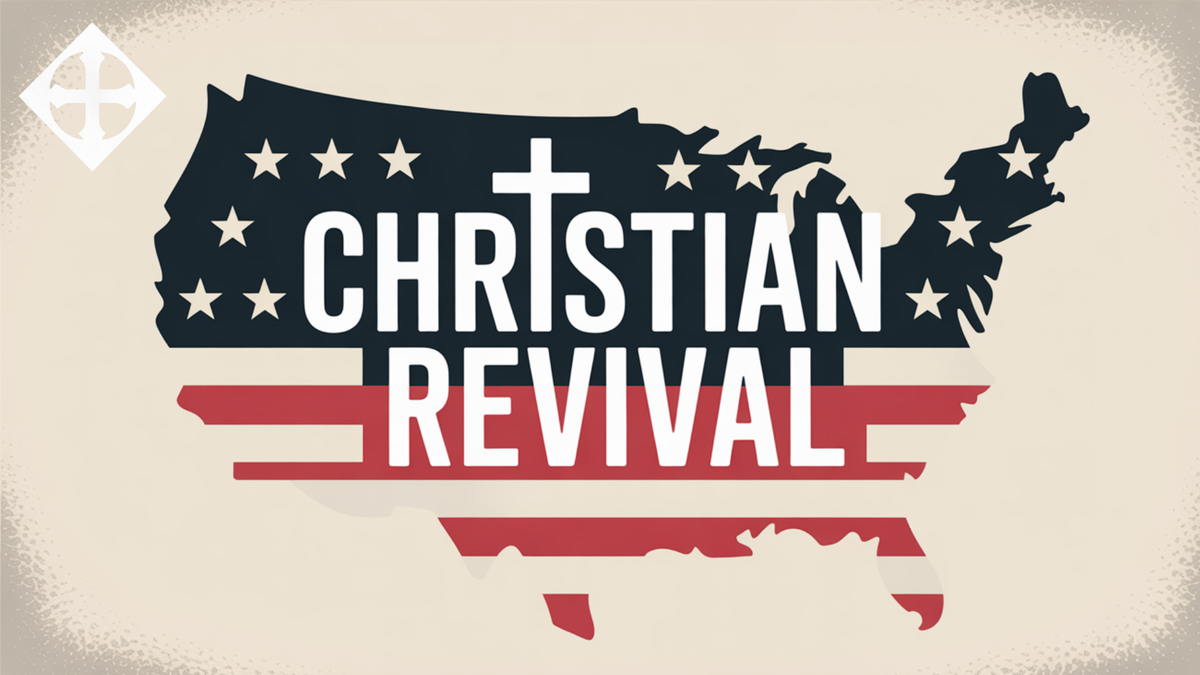
A surprising reversal in American Christianity is unfolding as Gen Z men return to church in unprecedented numbers, defying decades of declining attendance and signaling what researchers are calling the beginning of a new spiritual awakening. Multiple data points from 2024-2025 reveal a faith resurgence that has pastors, researchers, and cultural observers discussing the possibility of genuine revival.
According to a recent Barna Group study, church attendance has increased among Gen Z and Millennial men, with Gen Z males attending slightly more often than their Millennial counterparts, marking a generational reversal. The study shows that while most adults attend church around two out of every five weekends, younger men are bucking the long-term decline trend that has characterized American Christianity for decades.
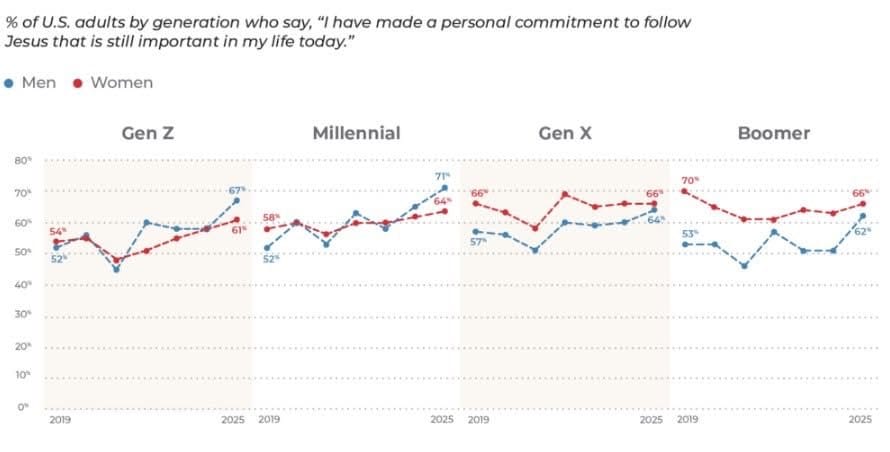
"This data represents good news for church leaders and adds to the picture that spiritual renewal is shaping Gen Z and Millennials today," said Daniel Copeland, Barna Group's vice president of research.
Gen Z has historically been known as the "least religious generation," making the current shift particularly significant. Dr. Cory Marsh, professor of New Testament at Southern California Seminary, explained: "Gen Z males are becoming fed up with a virtual world run by algorithms and dating apps and are seeking something real. Churches should respond to the current trend by modeling grace and truth, without elevating one above the other."
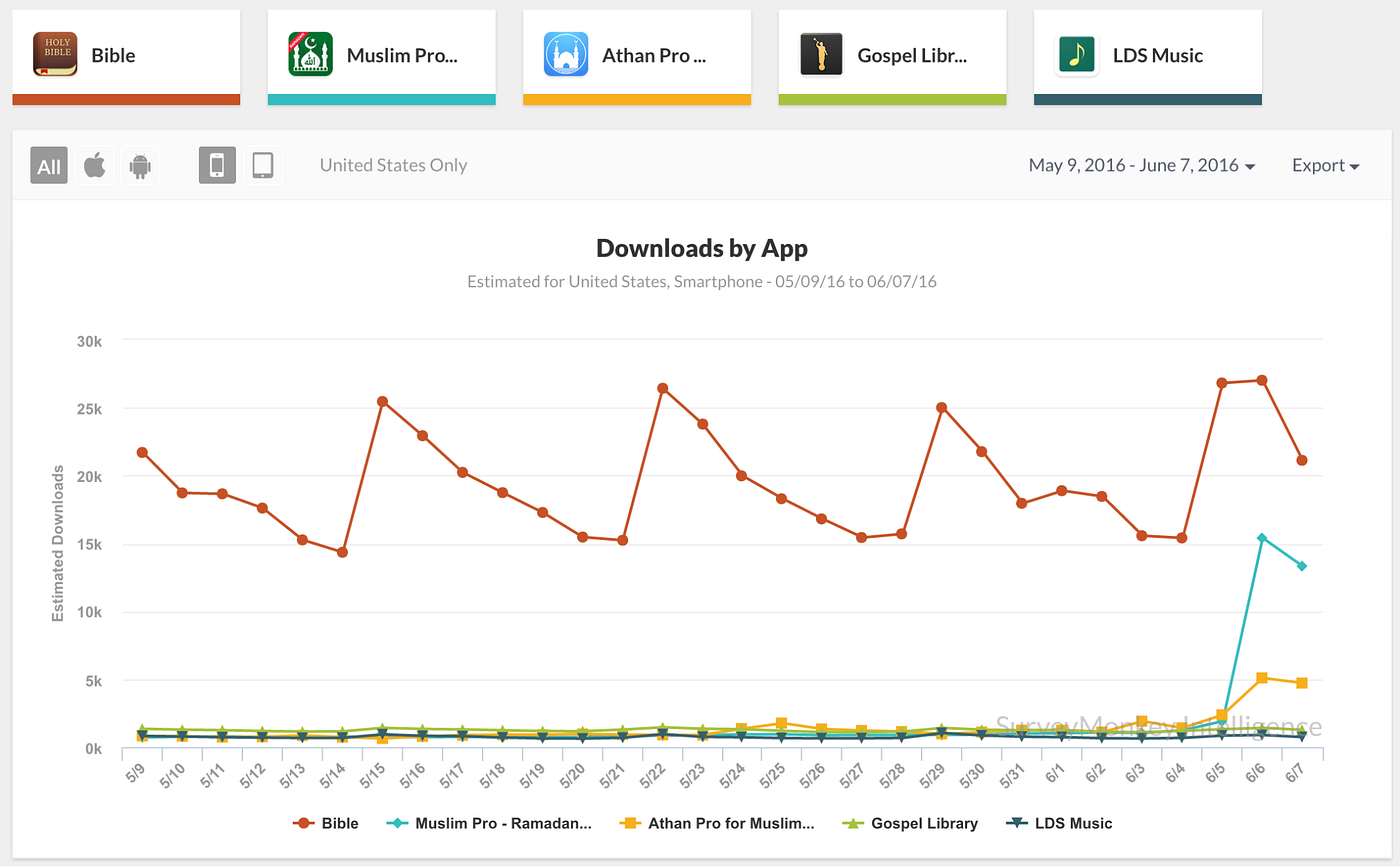
The revival extends far beyond attendance figures. Bible sales have exploded, increasing 41% from 2019 to 2024. According to Circana BookScan, 9.7 million Bibles sold in 2019, but by 2024, that number jumped to 14.2 million. Through October 2024, 13.7 million copies had already sold. More significantly, many of these buyers are first-time purchasers, according to the Evangelical Christian Publishers Association.
Christian app downloads have surged over 70%, with faith-based technology experiencing unprecedented growth. Hallow, a Catholic prayer guidance app, topped the App Store during Lent 2025. Dozens of apps providing Bible verses, study tools, religious chatbots, and church services now pull in millions through in-app purchases alone.
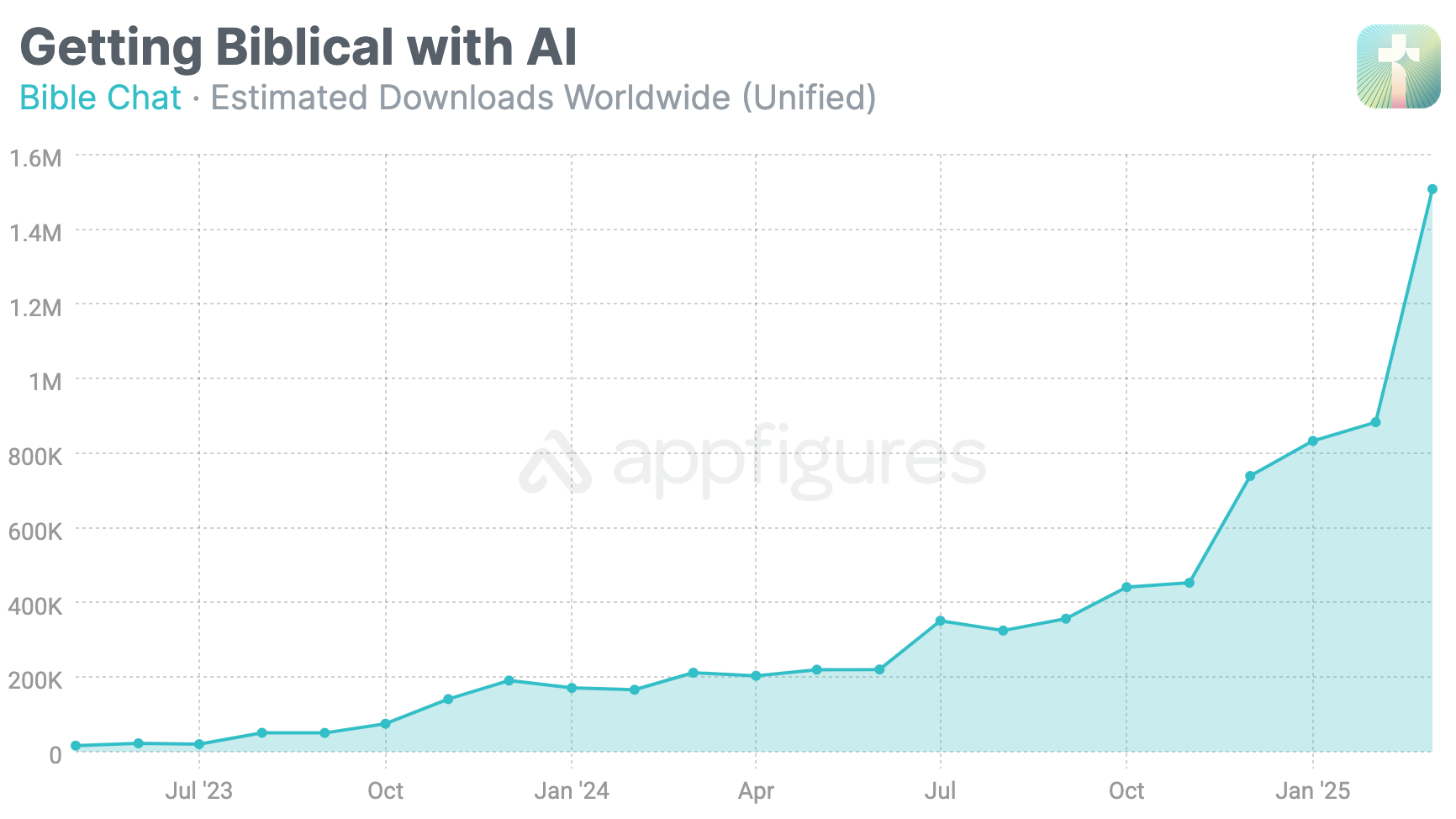
The State of the Bible USA 2024 report shows that more than 20% of Gen Z increased their Bible reading last year. Jeff Crosby, president of the Evangelical Christian Publishers Association, attributes the phenomenon to widespread anxiety: "People are experiencing anxiety themselves, or they're worried for their children and grandchildren. It's related to artificial intelligence, election cycles, and all of that feeds a desire for assurance that we're going to be OK."
Social media influencers and celebrities openly sharing their faith have contributed significantly to the trend. Cely Vazquez, a 28-year-old artist and influencer, recently acquired her first Bible and documented the moment on TikTok: "I wanted to begin my own spiritual journey. I felt something was missing. It's a combination of the situation we find ourselves in in the world, the widespread anxiety, and the feeling that meaning and consolation can be found in the Bible."
Publishers have modernized Bible design to appeal to diverse audiences, offering everything from deluxe leather-bound editions to graphic novel formats targeting teens, men, and beginning readers. Visual components including maps, charts, and biographies of biblical characters help engage new readers.
However, the revival shows a significant gender split. A 2024 report indicates young women are leaving church at significantly higher rates, with 61% identifying as feminist and expressing suspicion toward institutions upholding traditional social norms, according to the Survey Center on American Life.
Dr. Corey Miller, president and CEO of Ratio Christi, attributes the gender divide to radicalized ideologies taught at universities: "As go the universities, so goes the culture."
Dr. Douglas Groothuis, professor of apologetics and Christian worldview at Cornerstone University, emphasized the importance of biblical fidelity: "The answer for the church is not to adopt its message to the times, but to preach and teach and defend the truth of the Bible in a strong, but loving way."
The data reveals demographic patterns in Bible engagement. Black Americans report the highest regular Bible use at 57%, compared to 40% of Hispanics, 35% of whites, and 27% of Asians. Among denominations, evangelical Protestants (70%) and historically Black Protestant denominations (68%) show the most engagement, far surpassing mainline Protestants (46%) and Catholics (37%).
Mark Schoenwald, president and CEO of HarperCollins Christian Publishing, told The Wall Street Journal that celebrities and social media influencers openly sharing faith have accelerated the trend.
Even President-elect Donald Trump endorsed Bible reading in March 2024, posting on Truth Social: "All Americans need a Bible in their home, and I have many. It's my favorite book. I'm proud to endorse and encourage you to get this Bible. We must make America pray again."
The American Bible Society reports that nearly three-quarters of Americans (71%) express at least some curiosity about the Bible and Jesus, with 39% reporting they are very or extremely curious.
Industry analysts predict the trend will continue through 2025 and beyond. Publishers are launching new Bible versions including daily devotional Bibles and color-coded study Bibles highlighting key scriptural themes. "We're in a golden age of Bible publishing," said one industry representative. "It's never been as good as it is."
THE CRUSADER'S OPINION
America stands at revival's precipice, and Gen Z men are leading the charge. A 41% Bible sales increase and 70% surge in Christian app downloads aren't statistics; they're battle reports from spiritual warfare's frontlines. Young men, systematically emasculated by universities preaching toxic masculinity and dating apps reducing them to metrics, are rejecting the virtual void for something real. They're discovering what secular progressivism cannot provide: transcendent truth, permanent identity, and purpose beyond algorithmic existence.
The gender split reveals uncomfortable truth: feminized worship drove men away. Churches preaching biblical masculinity, calling men to sacrificial leadership, and challenging them toward kingdom purpose are growing. Meanwhile, 61% of young women identify as feminist and distrust traditional institutions after university radicalization. Churches must preach complementarianism without compromise while demonstrating that biblical design liberates rather than oppresses.
This moment demands courage. Preach the whole counsel of God. No Christianity lite. No therapeutic Jesus. Gen Z hungers for robust theology addressing sin, redemption, and holiness. They've tasted secularism's fruit and found it rotten. Churches maintaining biblical fidelity are winning. Those that compromised lost everything. The lesson is clear: truth attracts, accommodation repels.
Western civilization emerged from Christian truth and can only be sustained by it. This revival isn't just individual salvation; it's civilizational restoration. The fields are white for harvest. Will the Church rise with boldness, or squander this moment with timidity? America's future hangs in the balance.


